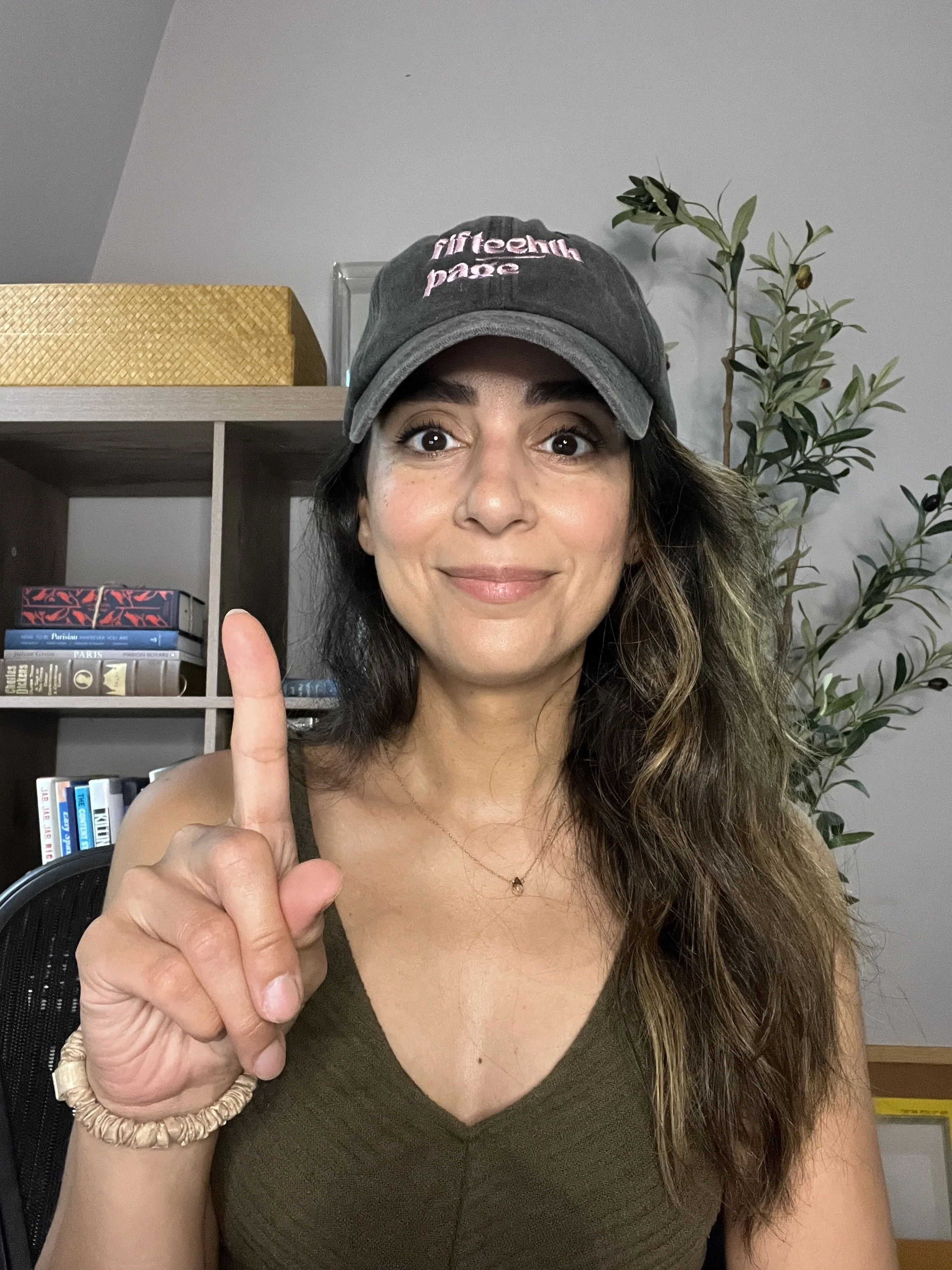The #1 AI Mistake Women’s Health Brands Are Making
Thanks for checking out the very first episode of the Fifteenth Page Show. We’ve been dreaming about starting this podcast for years—and honestly, it feels right that our debut tackles something we care deeply about: making sure your AI-generated content doesn’t slip in inaccuracies that could put your brand’s credibility at risk.
So what’s the #1 mistake brands make when it comes to AI?
Spoiler: it’s not using AI. We’re big fans! Our “intern,” as we like to call ChatGPT, has been a total lifesaver. But here’s the catch: the mistake is trusting AI without fact-checking what it spits out.
Why Fact-Checking AI Matters
As a women-owned studio with deep expertise in developing content for women’s health—from fertility and mental wellness to menopause and skincare—we understand the nuance, responsibility, and power of getting it right.
But here’s the thing: large language models (LLMs) are excellent at sounding polished, authoritative, and confident. But they’re also notorious for “hallucinating”—aka making things up. Sometimes that’s harmless. Sometimes it’s catastrophic.
Case in point: a group of lawyers recently submitted AI-generated legal arguments in court, complete with citations to sources that didn’t even exist.
And in medicine? A study last year found ChatGPT-4 answered fewer than 30% of medical questions accurately.
That stat should stop every women’s health marketer in their tracks. Because unlike a throwaway blog about “best brunch spots,” your content can directly shape how women make decisions about their health. And in topics like fertility, menopause, or postpartum anxiety—trust is everything.
The (Uncomfortable) Truth: AI Hallucinations Are Getting Worse
We wish we could say these errors are improving as AI evolves. They’re not. In fact, according to the New York Times, newer, more advanced systems are hallucinating more. In one recent evaluation, hallucination rates were as high as 79%.
That means even when the grammar and flow sound flawless, the facts may be cracked.
So What’s a Women’s Health Brand To Do?
Like we said, we’re not anti-AI. Far from it. We use it daily to brainstorm, draft, and save time. But here’s the line we never cross:
👉 AI is a tool, not the expert. You are.
If you’re using AI to generate content:
Fact check everything. Run it past a human editor before publishing.
Verify citations. If AI drops a stat or expert quote, track down the original source.
Rely on reputable databases. For health content, think PubMed, peer-reviewed journals, or trusted clinical sources.
Watch out for outdated advice. Especially in women’s health, where older recommendations around menopause or hormone therapy still float around online.
Final Thoughts
Misinformation doesn’t just risk a bad blog post. It can damage your audience’s trust—and once that’s lost, it’s almost impossible to rebuild.
In women’s health especially, where your community is turning to you for guidance on vulnerable, deeply personal issues, accuracy isn’t optional. It’s foundational.
So here’s our mantra at Fifteenth Page: AI is our intern, not our authority. It’s a helpful assistant, but the responsibility—the voice, the expertise, the trust—that’s yours.

